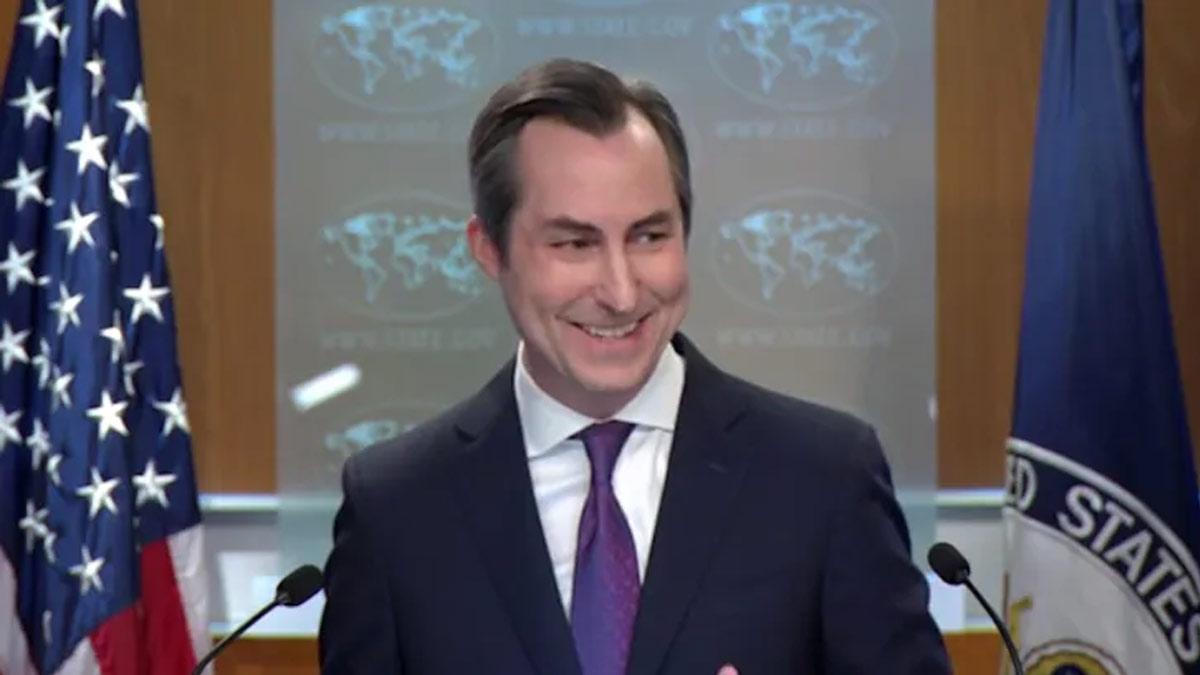The US was "not involved" in the series of pager explosions in Lebanon, and was "not aware" of any attack in advance, said a State Department spokesperson.
"The US was not aware of this incident in advance, and at this point, we're gathering information," said State Department spokesperson Matthew Miller, who repeatedly referred to the matter as an "incident," not an "attack."
Miller declined to say what information the US has thus far and refused to say whether the US determines that Israel is responsible or not.
Both Hezbollah and Lebanon have also blamed Israel for the attack, which wounded nearly 2,800 people and killed at least nine people, according to the Lebanese Health Minister. The Israel Defense Forces did not comment.
"I don't have any assessment to offer one way or the other at this point," said Miller.
Miller wouldn't say whether the US would draw its own assessment but said it was "gathering information through all of the ways in which we usually gather information."
"We are collecting information through various channels, diplomatic and otherwise, with regard to this incident," he said, but would not say whether the US has had conversations with Israeli or Lebanese officials.
"I don't want to prejudge what we'll say in the days to come," the State Department spokesperson said.
Asked if there had been any indication that Iran might retaliate, given that the Iranian ambassador was reportedly injured, Miller would not speculate until those reports could be confirmed.
"I've seen the reports. I don't want to speak to what the implications might be before a report is confirmed. But certainly, as is always the case, we would urge Iran not to take advantage of any incident, any instability, to try to add further instability and to further increase tensions in the region. That has been our message to Iran since October 7," he said.
Miller further said that the US believes there must be a diplomatic outcome for the conflict in northern Israel with Hezbollah, and that it is necessary for Israel and Hamas to work out a truce to make this possible.
He added: "It's very, very difficult to get a diplomatic resolution in the north absent a resolution to the conflict in Gaza, absent a ceasefire in Gaza, which is why we continue to push for that ceasefire, because we think it'll help make it much easier to reach a resolution."
Miller wasn't asked how this assault may impact on the ceasefire negotiations between Israel and Hamas.
There needs to be a diplomatic solution to this continued conflict between Israel and Hezbollah, White House Spokesperson Karine Jean-Pierre said on Tuesday.
Lebanon's Hezbollah promised to retaliate after blaming Israel for detonating pagers on Tuesday that killed at least nine people and wounded 2,750 others, including many of the militant group's fighters and Iran's envoy to Beirut.
"So we move on, we still believe there should be a diplomatic resolution to this," Jean-Pierre said.
Read also| Top American Diplomat Sees a Bright Future for US-India Relations
Read also| China’s Security Chief Urges 'Resolute Crackdown' on Separatists in Tibetan Regions


















